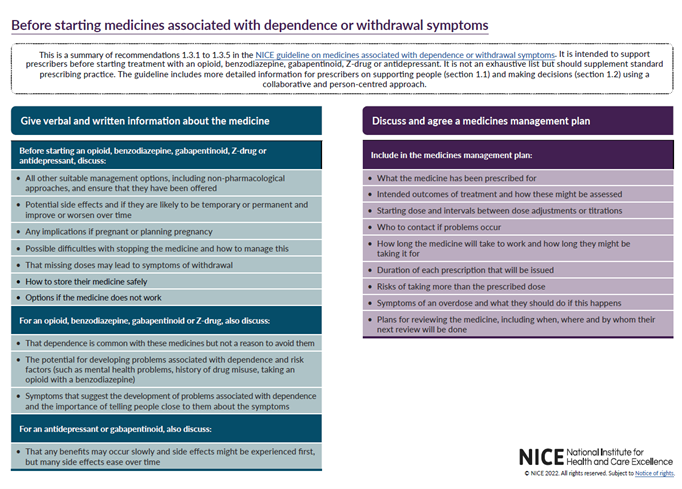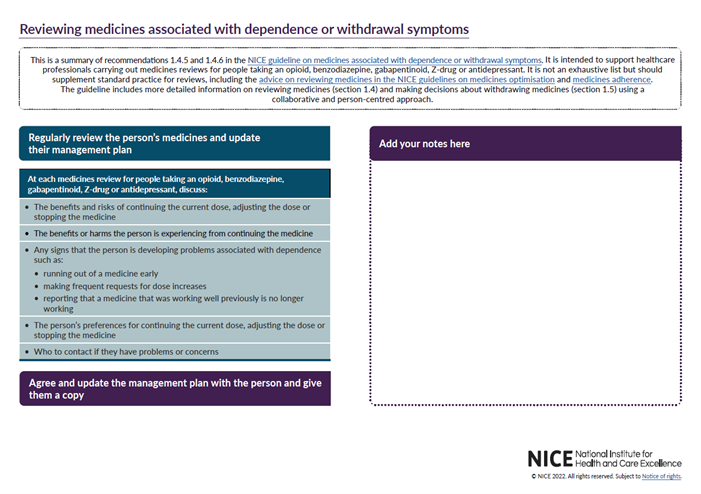Overview
This guideline covers general principles for prescribing and managing withdrawal from opioids, benzodiazepines, gabapentinoids, Z‑drugs and antidepressants in primary and secondary care.
It does not cover gabapentinoids prescribed for epilepsy, nor opioids prescribed for acute or cancer pain, or at the end of life, nor management of illicit drug dependence.
Recommendations
This guideline includes recommendations on:
- supporting people taking a dependence-forming medicine or antidepressant
- making decisions about prescribing and taking a medicine
- starting a medicine, including information and support, management planning, prescribing strategies and working with other healthcare professionals
- reviewing a medicine
- making shared decisions about withdrawing medicines
- dose reduction, managing withdrawal symptoms and interventions to support withdrawal
See visual summaries on the recommendations for discussing starting a medicine and making a management plan and reviewing medicines.
Who is it for?
- Healthcare professionals
- Commissioners of NHS and local authority services
- People using services, their families and carers, and the public
Guideline development process
How we develop NICE guidelines
This guideline has been commissioned by NICE and developed at the National Guideline Centre, which is hosted by the Royal College of Physicians.
Your responsibility
The recommendations in this guideline represent the view of NICE, arrived at after careful consideration of the evidence available. When exercising their judgement, professionals and practitioners are expected to take this guideline fully into account, alongside the individual needs, preferences and values of their patients or the people using their service. It is not mandatory to apply the recommendations, and the guideline does not override the responsibility to make decisions appropriate to the circumstances of the individual, in consultation with them and their families and carers or guardian.
All problems (adverse events) related to a medicine or medical device used for treatment or in a procedure should be reported to the Medicines and Healthcare products Regulatory Agency using the Yellow Card Scheme.
Local commissioners and providers of healthcare have a responsibility to enable the guideline to be applied when individual professionals and people using services wish to use it. They should do so in the context of local and national priorities for funding and developing services, and in light of their duties to have due regard to the need to eliminate unlawful discrimination, to advance equality of opportunity and to reduce health inequalities. Nothing in this guideline should be interpreted in a way that would be inconsistent with complying with those duties.
Commissioners and providers have a responsibility to promote an environmentally sustainable health and care system and should assess and reduce the environmental impact of implementing NICE recommendations wherever possible.

